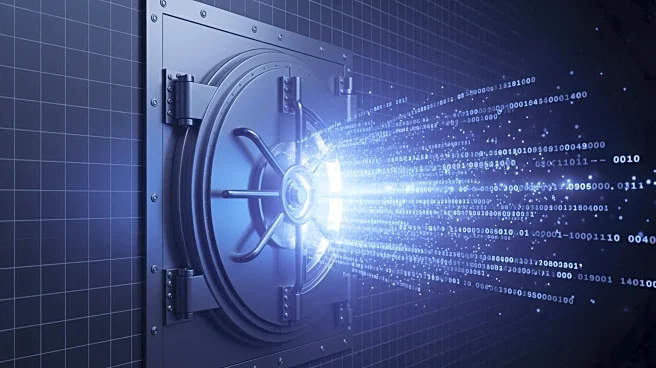What is the story about?
What's Happening?
ABC News has reported on the recent ceasefire between Israel and Hamas, highlighting both hope and apprehension in the Middle East. The ceasefire is seen as a historic moment, potentially paving the way for long-term peace in a region that has been fraught with conflict for decades. The report draws parallels to the Oslo Accords, which were signed over 30 years ago with similar promises of peace but ultimately failed to deliver lasting results. The ceasefire comes after a period of intense violence and negotiations, with both sides agreeing to halt hostilities. ABC’s John Donvan provides insights into the situation, noting the cautious optimism among observers who hope this ceasefire will lead to more substantive peace talks and resolutions.
Why It's Important?
The ceasefire between Israel and Hamas is significant as it could mark a turning point in the longstanding conflict between the two parties. For the U.S., this development is crucial as it impacts foreign policy and diplomatic relations in the Middle East. A stable and peaceful region could lead to improved economic ties and security cooperation, benefiting U.S. interests. However, the history of failed peace agreements, such as the Oslo Accords, serves as a reminder of the challenges ahead. The ceasefire's success or failure will have implications for regional stability, affecting global markets and international relations. Stakeholders, including governments and humanitarian organizations, are closely monitoring the situation.
What's Next?
Following the ceasefire, the next steps involve monitoring its implementation and ensuring both parties adhere to the terms. Diplomatic efforts are expected to intensify, with international mediators possibly stepping in to facilitate further negotiations. The U.S. and other global powers may play a role in supporting peace initiatives and providing aid to rebuild affected areas. The reaction from political leaders and civil society groups will be crucial in maintaining momentum towards peace. Observers will be watching for any violations or breakdowns in the ceasefire, which could derail progress and lead to renewed conflict.
Beyond the Headlines
Beyond the immediate impact, the ceasefire could influence broader geopolitical dynamics in the Middle East. It may affect alliances and power balances, with countries reassessing their positions and strategies. The ethical dimension involves addressing humanitarian needs and ensuring justice for those affected by the conflict. Long-term shifts could include changes in public opinion and cultural attitudes towards peace and reconciliation. The ceasefire also raises questions about the role of international law and the effectiveness of diplomatic interventions in resolving complex conflicts.


















